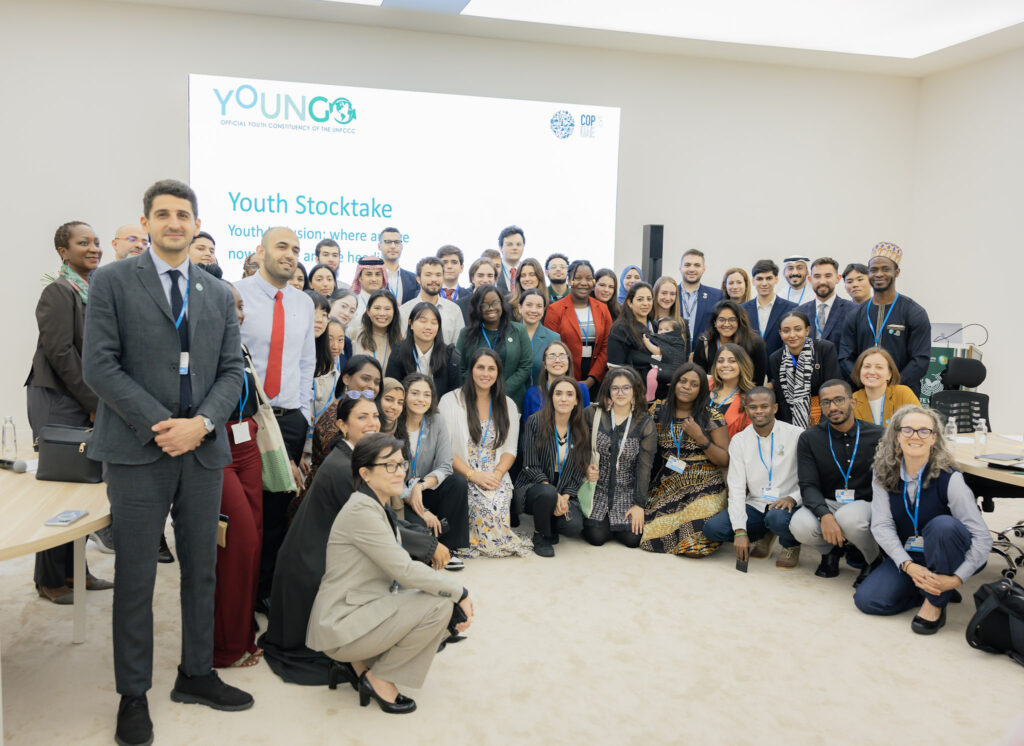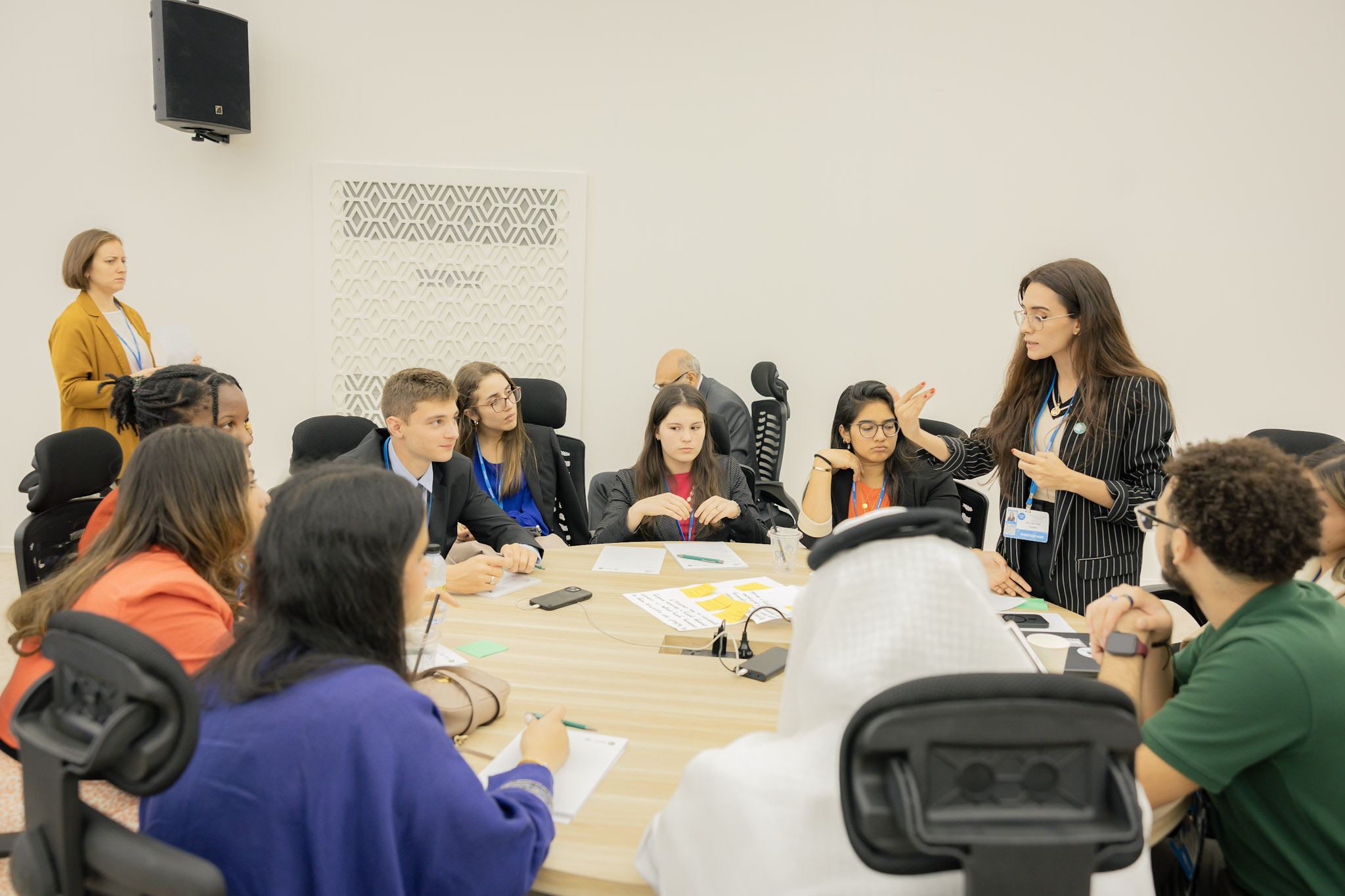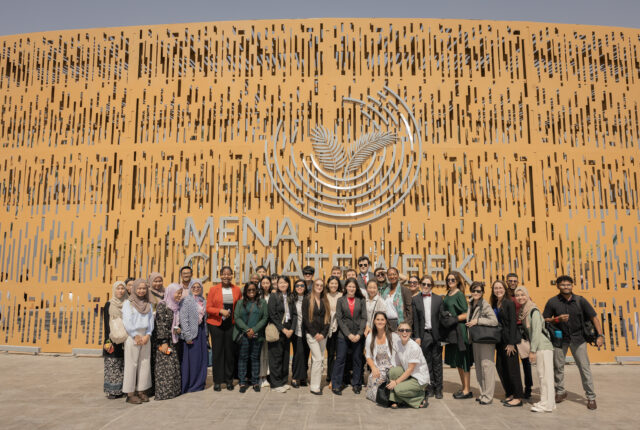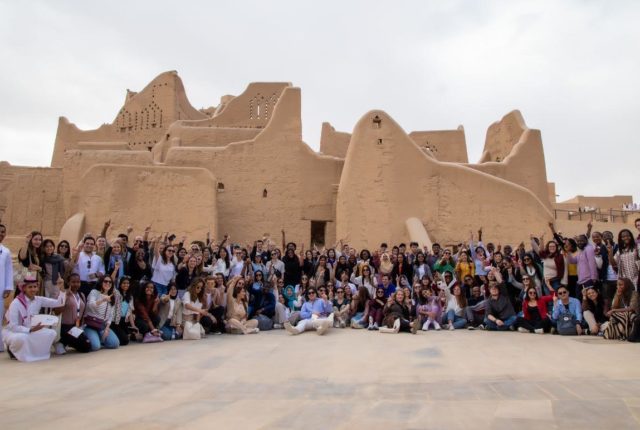By Giovanna Antoniassi Aires Garcia

Recognition for the importance of young voices in international affairs, when dealing with global conflicts has significantly increased over the years. Within this consideration, I am deeply thankful to have had the opportunity to attend MENA Climate Week 2023, hosted in Riyadh, Saudi Arabia. Thanks to Foundations for Leadership (FLL), The United Nations Sustainable Development Network (UN SDSN) and the Ministry of Tourism of Saudi Arabia, I got to engage in invigorating discussions on Climate Change, ranging from the global, national, and local levels. Through the organization of leading partners such as UNDP, UNEP, UN Climate Change, World Bank Group, and others, I met some incredible individuals from all over the world, I can confidently say that our gathering of minds, knowledge, and passion will make change for the better of our future!
I had the incredible chance to moderate a panel on Multi-Sectoral Mobilization and Regional Adaptation for Seas Without Plastic with the Mohammed VI Foundation for Environmental Protection. Undoubtedly, my experience as a moderator was unforgettable and immensely impactful. Despite not being directly involved with the region, I was so inspired by the words of the panelists that it gave me the desire to create my own actionable steps for change. I was born in Goiânia, Brazil, and moved to Miami, Florida when I was 9 years old, I have been living in Miami for 10 years and am currently a student at the University of Miami. This year will be my fifth year coaching sailing here in Miami for Coral Reef Yacht Club. My personal background truly merged with what was brought up in the discussion because despite the focus being on the Middle East and North Africa regions, the topic at hand was the removal of plastics from the ocean, a matter of great concern in Florida. This is due to the significant threats it poses, especially to our extensive coral reef barrier which is the largest in the United States. This inspired me to translate the knowledge gained from the panel into actionable change; dedicating a day for my students and me to venture out into the ocean to collect plastic debris, contributing to the ongoing efforts to preserve our marine environment.
The experience of moderating allowed me to bring this national initiative to a local one, and the immersion had a personal influence on my life, and if more youth delegates got this opportunity I can only imagine the global harmony of initiatives that would come as a consequence. I want to commend MENACW for their global efforts to make youth involvement in events like this possible, and as a student who truly thrives off new experiences, I believe that there can be ways to optimize youth involvement opportunities for an even better outcome!
The conference held extremely insightful and inspiring main panels discussing a wide range of topics. However, at the parallel youth events, I couldn’t help but think about the wealth of untapped potential that lay within the vibrant student population present at MENA Climate Week. You see, parallel lines never intersect; I believe that our youth forums should definitely intersect with those main panels! It is crucial to recognize that youth have a unique perspective, unbridled creativity, and an unwavering commitment to environmental sustainability. Incorporating their voices into the main panel discussions could have ignited a level of engagement and involvement that would be unparalleled, resulting in a more profound and lasting impact.
I want to emphasize that promoting youth voice inclusion entails differentiating between active participation and presence. Engaging in meaningful discussions can drive substantial change, and the greater the number of voices heard, the more impactful the outcomes can be. A single voice can create an echo, so imagine the power of numerous voices. And after all, everyone deserves a seat at the table, just like in the United Nations.
So, what 7 things should we keep in mind when trying to engage youth in a meaningful way that drives outcomes?
- Recognize and Value Youth Voices: Acknowledge the importance of including youth perspectives in global events and discussions. Understand that their unique insights, creativity, and commitment can lead to meaningful change.
- Connect Global and Local Contexts: Encourage discussions and initiatives that bridge the global with the local. Find common ground where global issues align with regional concerns, allowing youth to relate their experiences and expertise to broader challenges.
- Empower Action: Facilitate opportunities for youth to translate knowledge into action. Inspire them to take tangible steps toward positive change, such as organizing local initiatives or projects based on the insights gained from global events.
- Foster Inclusivity: Promote an inclusive environment where youth are active participants in meaningful discussions rather than passive observers. Ensure their voices are heard, valued, and integrated into the broader dialogue.
- Collaborate Across Generations: Encourage intergenerational collaboration. Allow youth forums to intersect with main panels, creating opportunities for cross-generational discussions, knowledge sharing, and mentorship.
- Amplify the Impact of Youth Voices: Recognize that collective action is more powerful. Encourage collaboration among youth, enabling them to work together to drive change on a larger scale.
- Continuously Optimize Youth Engagement: Regularly assess and refine strategies for engaging youth effectively. Seek feedback from young participants and stakeholders to adapt and improve the engagement process for better outcomes.
Giovanna Antoniassi Aires Garcia is a pre-law student at the University of Miami, USA, and was an SDSN delegate to Middle East and North Africa (MENA) Climate Week 2023 in Riyadh, Saudi Arabia.



